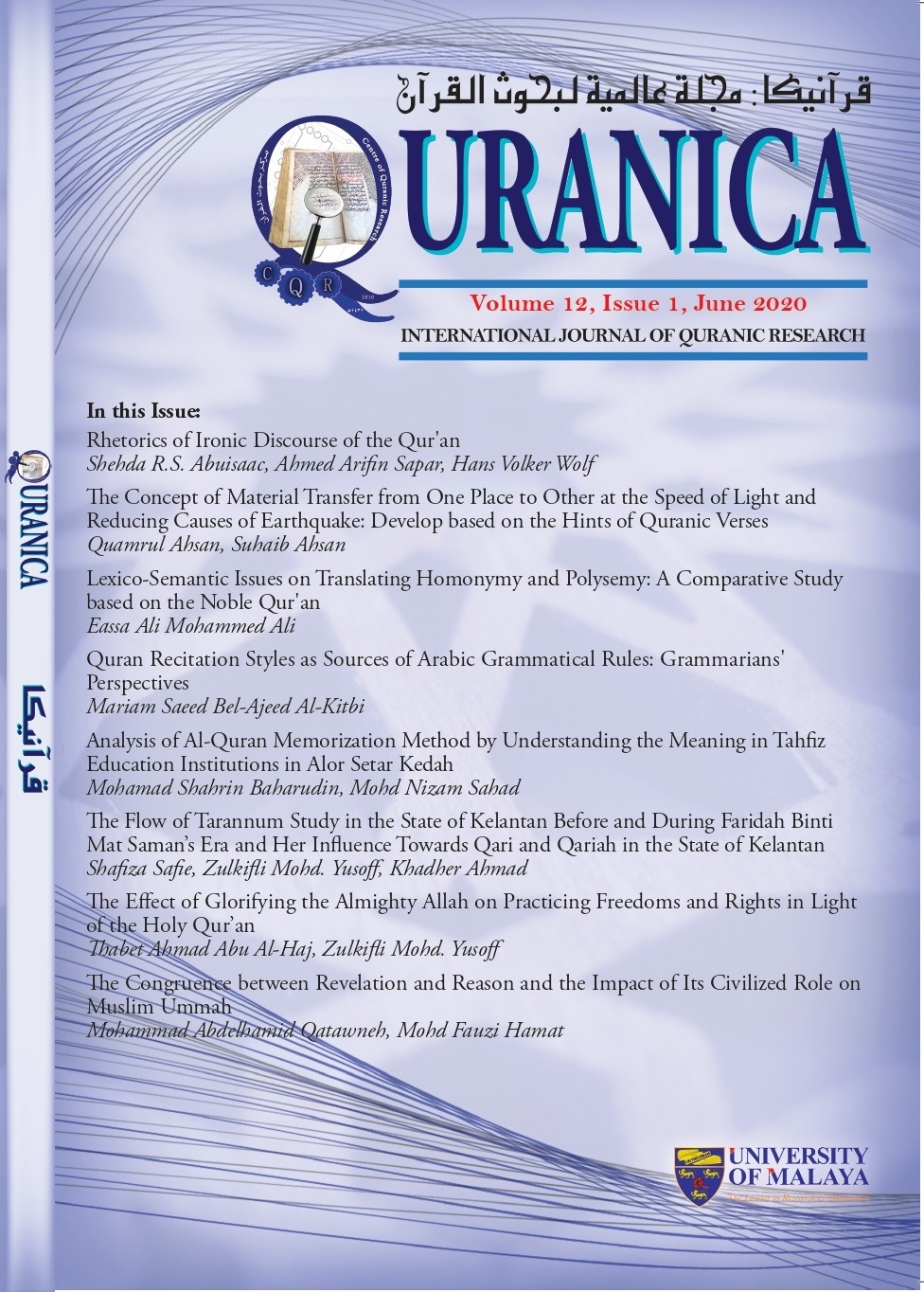The Congruence between Revelation and Reason and the Impact of Its Civilized Role on Muslim Ummah
Main Article Content
Abstract
This study seeks – as an attempt to highlight the issue that has preoccupied the Islamic Thought over the past and present – to clarify the relationship between revelation and reason with regard to beliefs، philosophies and other religions preceding the advent of Islam، as well as to clarify the limitations of revelation and reason in revealing the truth of existence as well as the relationship between them in the field of Islamic Thought. It also seeks to know the Islamic vision that serves to solve this issue in the field of human knowledge. This attempt seeks to display the congruence between revelation and reason، and the role of revelation in determining the reason’s limitation due to the lack of knowledge tools. To solve this sensitive and complicated issue، Islam comes to provide an idealistic solution in “understanding the essence of revelation and reason” in one hand. On the other hand، revelation provides more space for the reason in texts that layout the relationship between human and universe as the other side of the creed. If Islam، in the first hand، provides a limited area for reason، then revelation requires Muslim Mind to think، interact and to be updated with the written signs of Allah together with the signs that are scattered in the universe in achieving a civilised role assigned to the Muslim nation.
Downloads
Article Details
Disclaimer
QURANICA makes every effort to ensure the accuracy of all its contents. However, opinions, discussions, views and recommendations are expressed in this journal do not necessarily reflect the official policy of QURANICA or views of its editors or publishers. Therefore, QURANICA and its publishers will not be liable for any controversy may be arisen. The journal reserves the right, at its sole discretion, to change its terms and conditions of publications.
Copyright
It is a condition of publication that manuscript submitted to the journal have not been published, accepted for publication, nor simultaneously submitted for publication elsewhere. By submitting a manuscript, the author(s) agrees that copyright for the article is transferred to the publisher, if and when the manuscript is accepted for publication.
